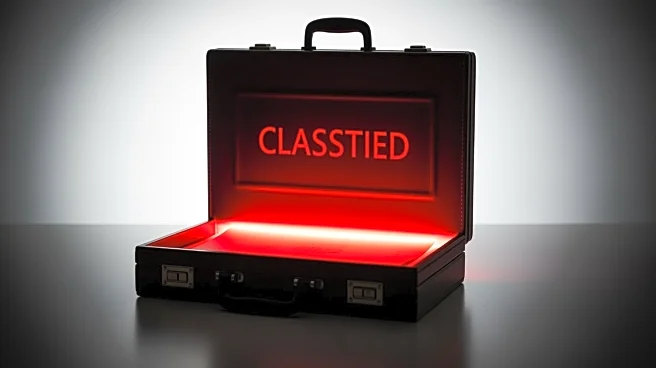What's Happening?
A grand jury has indicted John Bolton, former National Security Adviser under President Trump, for allegedly mishandling classified information. The indictment is part of ongoing investigations into the
handling of sensitive documents during the Trump administration. Bolton, who served as a key adviser, is accused of improperly managing classified materials, a charge that has surfaced amid broader scrutiny of document security practices from that era. The indictment follows a series of legal challenges faced by former Trump officials, highlighting the continued legal ramifications stemming from their tenure.
Why It's Important?
The indictment of John Bolton underscores the persistent legal challenges associated with the Trump administration's handling of classified information. This development could have significant implications for national security protocols and the accountability of high-ranking officials. It raises questions about the security measures in place during the administration and the potential risks posed by mishandling sensitive information. The case may influence public policy discussions on document security and the responsibilities of government officials in safeguarding national secrets.
What's Next?
The legal proceedings against John Bolton are expected to unfold in the coming months, with potential implications for other former Trump officials who may face similar scrutiny. The case could lead to increased calls for reforms in how classified information is managed and the enforcement of stricter security protocols. Observers will be watching for reactions from political leaders and legal experts, as well as any potential impact on Bolton's career and reputation.
Beyond the Headlines
The indictment of a high-profile figure like John Bolton may have broader implications for the political landscape, potentially affecting public trust in government institutions. It also highlights the ethical considerations surrounding the management of classified information and the responsibilities of those in power. The case could prompt a reevaluation of legal standards and practices related to national security.











